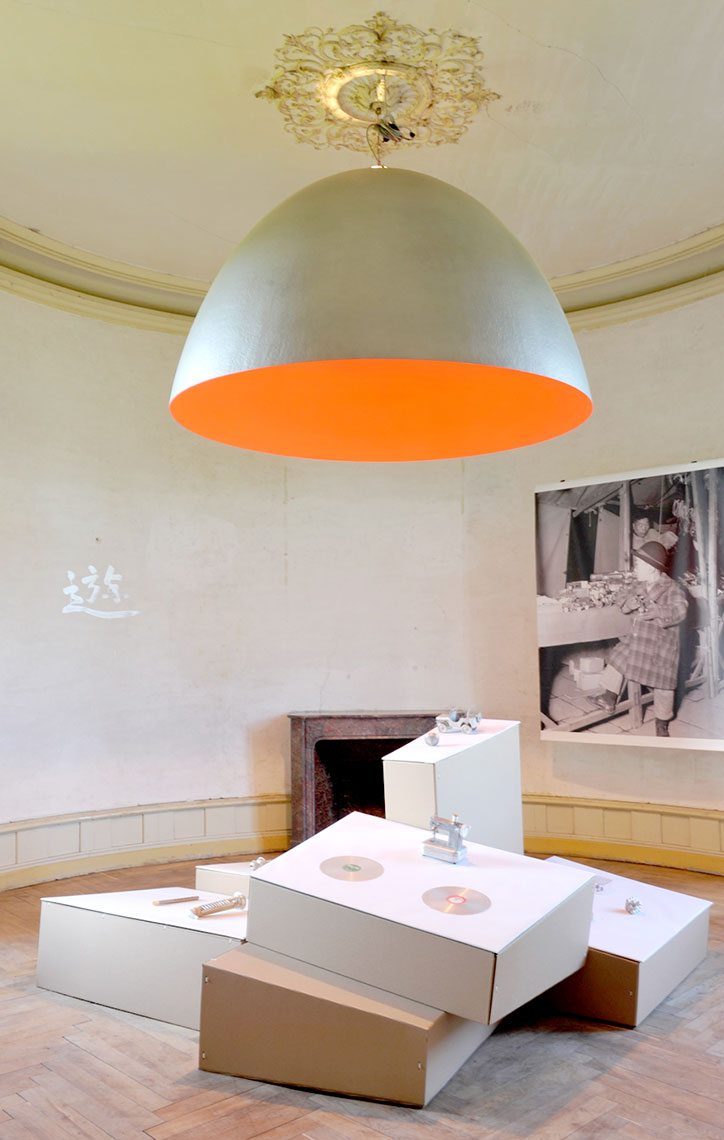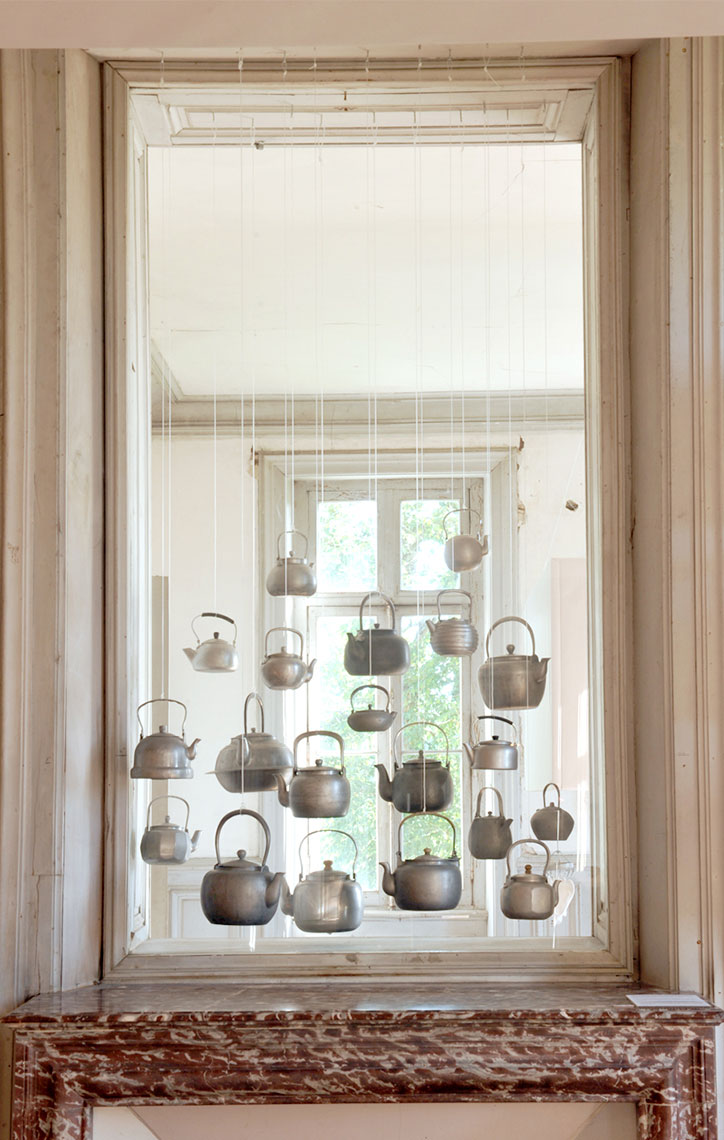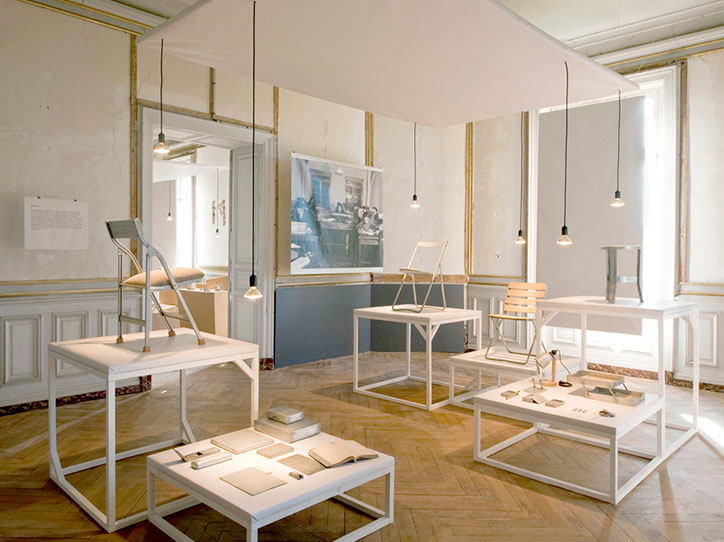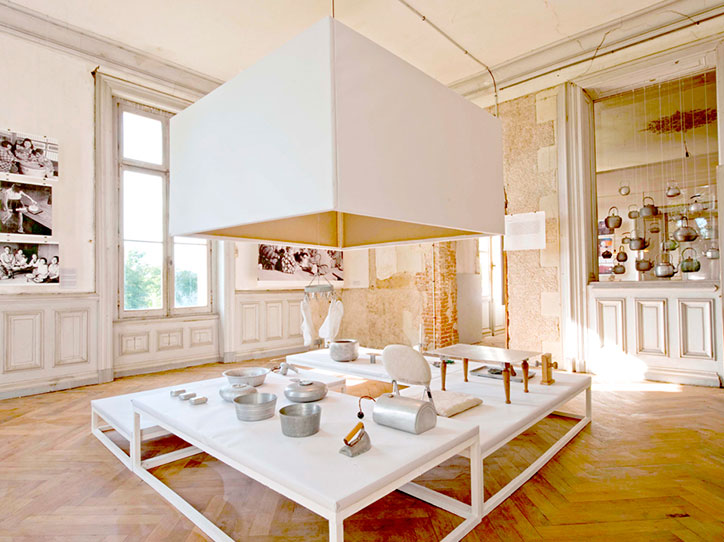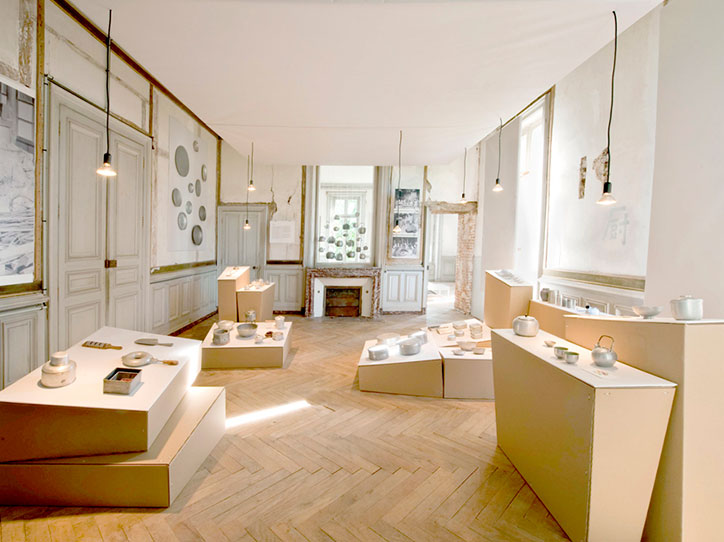SUMMER EXHIBITION 2011
NAKED SHAPES
JUNE 1ST – SEPTEMBER 1ST
Aluminium recycling in postwar Japan.
Naked Shapes showed aluminium objects of daily use, which industrial designer Seiji Onishi, gallery owner Keiichi Sumi and graphic designer Nobuhiro Yamaguchi have passionately assembled over more than twenty years. Cleaned of any sorts of make-up such as paint, labels or excess decoration, these things were stripped bare, down to their essential form. In their simplicity, anonymity and material nakedness, they express a quiet yet crystal-clear poetry of everyday objects.
The some 200 exhibited tools, cooking utensils, household appliances, items of furniture and toys in this collection were all produced as objects of anonymous design in the period from 1910 to around 1960, when Japan’s modernisation began to take hold following World War II. As a populous island nation with few mineral resources, the country has a long tradition of reclaiming and reusing materials. Today, Japan is the world leader in the re- cycling of aluminium cans and especially during the war and in the post-war period, objects that would normally be made of steel, wood or ceramic were produced there in aluminium – a material which is expensive to manufacture in the first place but very easy to process.
The objects assembled in this exhibit were always tainted by the aura of being cheap substitutes and therefore scarcely received any notice. Yet now, exempt from modish posturing and short-lived attractiveness, they appear in our world of plenty as a quiet and valuable testimony to a culture of meaningful inter-action with material things. Furthermore, the process of cleaning that only leaves behind the naked material and concentrates the form on its essential function symbolizes the typical material-specific workmanship and refined simplicity of Japanese design.
The traditional Japanese attitude of respect towards nature and the sustainable use of its resources have long been drowned out by a consumption binge matched by few other countries. Japan’s latest economic crisis, which continues to impact the country, as well as the severe earthquake of March 2011, has reawakened the traditional values of this culture. In our today’s context, the special talent of the Japanese to bring functionality and beauty in harmony with one another through means of reduction should serve as an important example to all of us – as a model of timeless design and a contribution to the responsible shaping of the world.
Naked Shapes is perfectly suited to the questions of our time. Forgotten by history – and just like the emperor without his new clothes, the objects of this extraordinarily simple yet striking exhibition only reveal their true essence and the pure idea of their purpose.
The original presentation of this exhibition was conceived by Hamburg-based designer Daniel Kern, who implemented the visual choreography together with students from Parsons The New School for Design, New York, using the simplest possible means. The thematic concept of the show and its organization were developed by Japanese curator Ayako Kamozawa, based on a presentation of the Onishi-Sumi collection for the exhibition’s gallery of the retail chain Muji in 2010. Muji ́s support of this project is a logical choice, as the concept and worldwide success of the company are based on similar types of products that are minimalistic yet anonymously designed and manufactured in a resource-saving manner.
